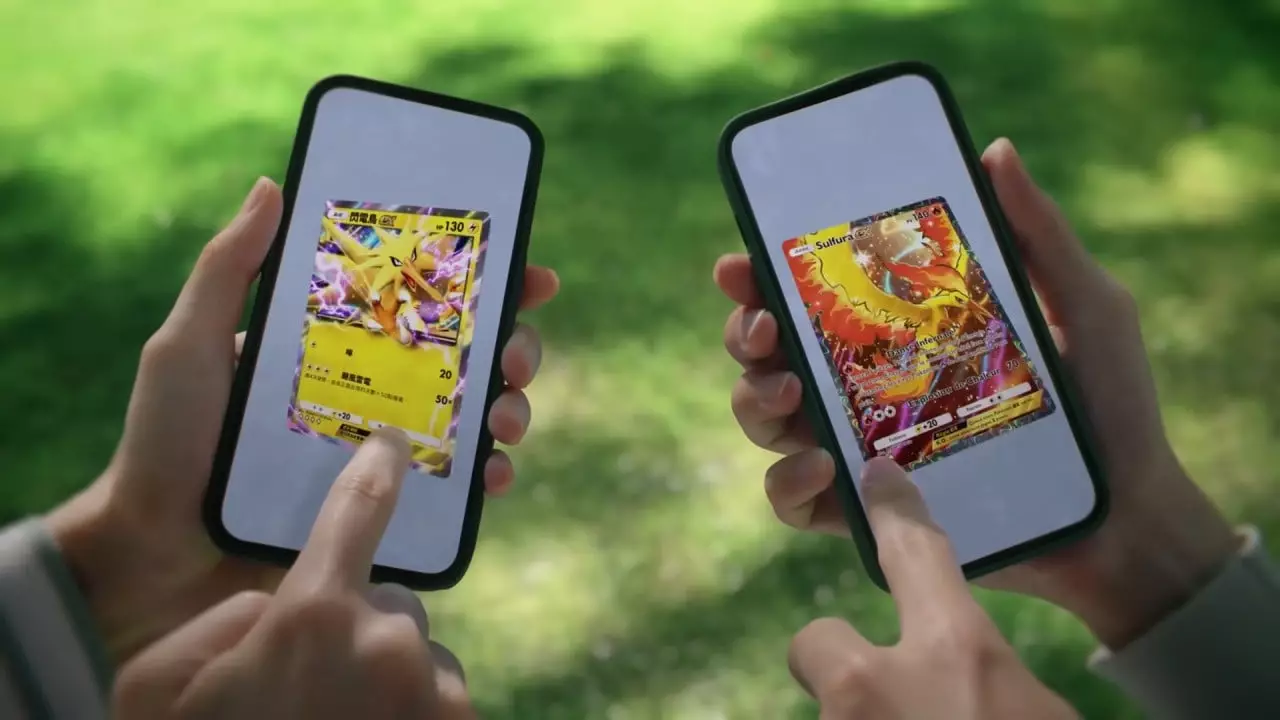Late last year, fans of the Pokémon Trading Card Game Pocket found themselves navigating a disappointing trading feature that left many feeling unfulfilled. The core essence of trading—an integral part of the Pokémon universe—seemed compromised due to cumbersome mechanics and perceived limitations. Specifically, trade tokens created a barrier instead of fostering an engaging community. While the introduction of any new feature typically garners excitement, this particular rollout ignited skepticism, revealing a pronounced disconnect between developers and the passionate player base. Players yearned for the simplicity and thrill of trading without convoluted prerequisites.
The initial feedback was unequivocal—the trading system needed a significant revamp. And rightly so; the thrill of trading cards should evoke joy and camaraderie rather than frustration and resentment.
A Promising Shift Towards Simplicity
In response to the outcry, the development team has presented a refreshing plan aimed at revamping the trading experience by the end of autumn 2025. Prominent among these changes is the elimination of trade tokens. This removal is a strategic move that directly addresses players’ desires for a more seamless trading process. By dismantling the complexity of token requirements, the developers are signaling a commitment to enhancing the user experience.
Moreover, substituting trade tokens with shinedust as a currency for trading cards that possess higher rarity levels marks a significant shift towards fluidity. Shinedust is more accessible, particularly as players earn it simply by opening booster packs. This cleverly eliminates the arduous task of accumulating tokens through trades, allowing players to engage with the trading system more organically and intuitively.
A Community-Centric Approach
The decision to allow players to convert their existing trade tokens into shinedust is commendable and underscores the developers’ understanding of player sentiment. It’s a testament to their efforts to regain trust—a smart maneuver that eases the transition into the newly designed system. By providing a clear pathway for players to move forward without losing previously invested resources, the developers evoke a sense of solidarity with their community.
Furthermore, the added capability to share cards players wish to trade for bolsters camaraderie within the game. This feature encourages interaction and strategy—two crucial elements of any trading endeavor. Trainers can now communicate more effectively about their trading interests, fostering a vibrant marketplace within the game’s ecosystem.
Future-Forward: A Comprehensive Vision
The announcement also hints at broader aspirations, promising further enhancements, particularly regarding unavailable cards such as promo cards and two-star rarity cards. The developers have recognized that a thriving trading environment cannot be one-dimensional. By actively seeking feedback and exploring ways to improve card availability for trading, they’re laying the groundwork for a robust, inclusive system fostering long-term player engagement.
That said, players are likely to remain vigilant, recalling past disappointments. Any promise of improvement must be followed through with tangible results. Transparency in the development process is essential; regular updates and open dialogues about challenges will further cement the community’s confidence in the future direction of Pokémon Trading Card Game Pocket.
Championing Accessibility and Enjoyment
In essence, the proposed changes reflect a commitment to making trading within the Pokémon Trading Card Game Pocket not only a more accessible experience but also a fundamentally enjoyable one. The desire to elevate the trading experience aligns with the core values of the Pokémon franchise: friendship, collaboration, and shared adventure. Trading is more than just an exchange; it’s an avenue for expression, strategy, and community-building.
As these new features prepare for rollout, players can cautiously embrace the potential for a true revival of trading within the game, a system that resonates with the spirit of Pokémon—one that champions not only competition but also collaboration. The path ahead appears promising, but as the community eagerly awaits these changes, it becomes clear that a vibrant, engaged player base is pivotal in shaping the future of the Pokémon Trading Card Game Pocket. The true test will be how these updates are received once implemented—an exciting challenge for developers and trainers alike.

